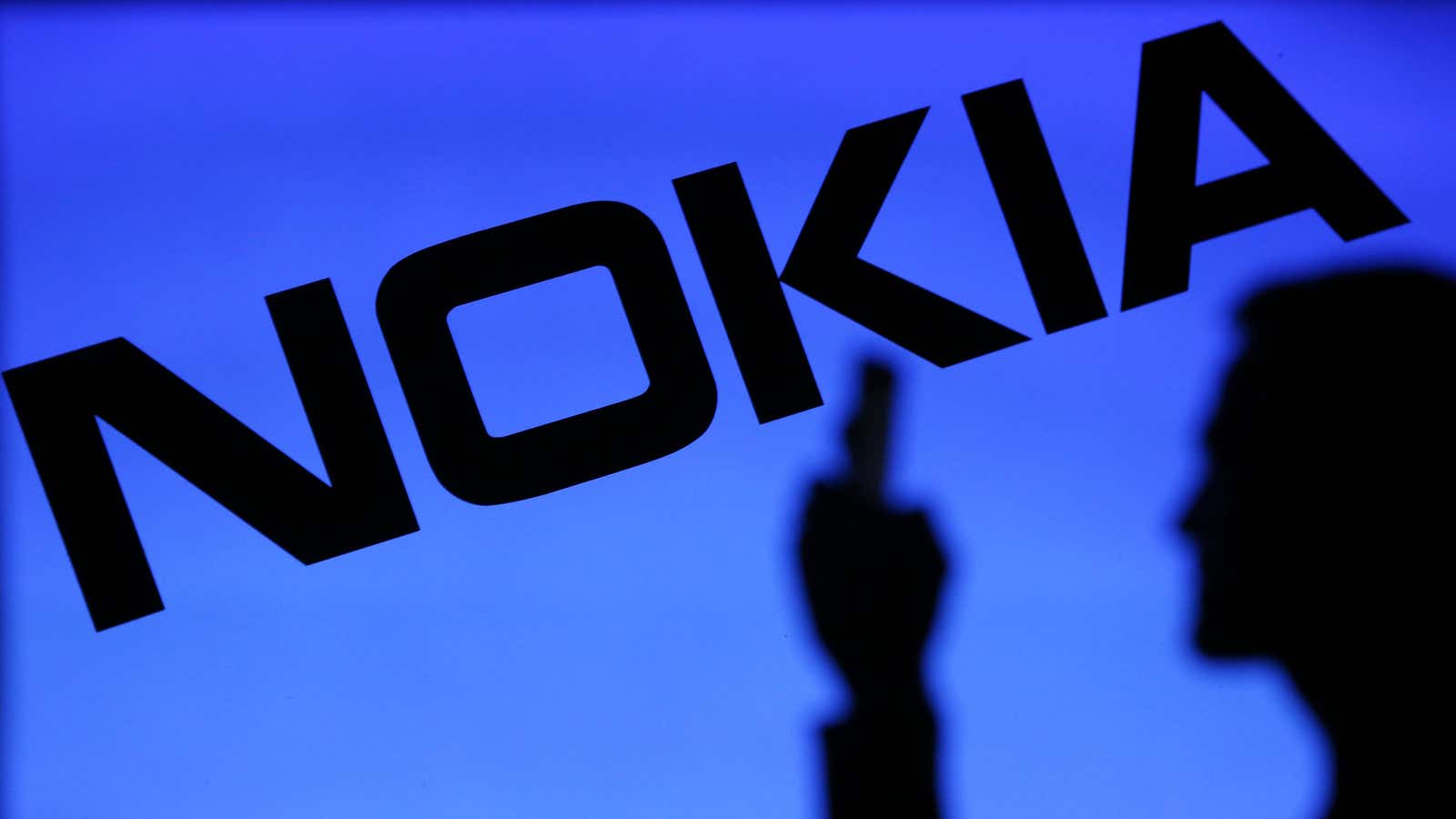Nokia is making a return, of sorts, to the business that once made it a household name.
Today (May 18), Nokia announced the sale of the feature phone business that Microsoft bought from it to Taiwan’s Foxconn, the contract manufacturer to almost every mobile brand in the world. Also involved in the $350 million deal is HMD Global, a new company led by Nokia and Microsoft alumni. Nokia will license its brand to these low-end handsets.
Microsoft bought Nokia’s once-dominant mobile business in 2014 for $7.2 billion, a deal that didn’t turn out well, as today’s sale price reveals. Microsoft’s smartphone business, with Windows software running on Nokia hardware, is still struggling.
And then there are the ”dumb” phones, basic handsets that do little more than send messages and make calls. These phones are still branded Nokia, because Microsoft has been licensing the brand from the Finnish firm. The deal announced today transfers those branding rights, plus the associated technologies to Foxconn and HMD Global. HMD says it will invest $500 million over the next three years to build and distribute “a full range of Nokia-branded feature phones, smartphones and tablets.”
The value of the Nokia brand is a far cry from what Microsoft paid for it a few years ago, to say nothing of the Finnish firm’s peak market cap of around $300 billion (paywall) at the turn of the century. Learning its lessons, Nokia now acts purely as an intellectual property licensor, through Nokia Technologies, which has become essentially a patent and branding agency.
After receding from prominence following the sale of its phone business, Nokia has been in the process of remaking itself. Last month it made its first big move back into the consumer space, buying French internet-of-things and wearables maker Withings for $191 million. With this new phone deal, it will hope to push its famous handsets back into consumer consciousness.
